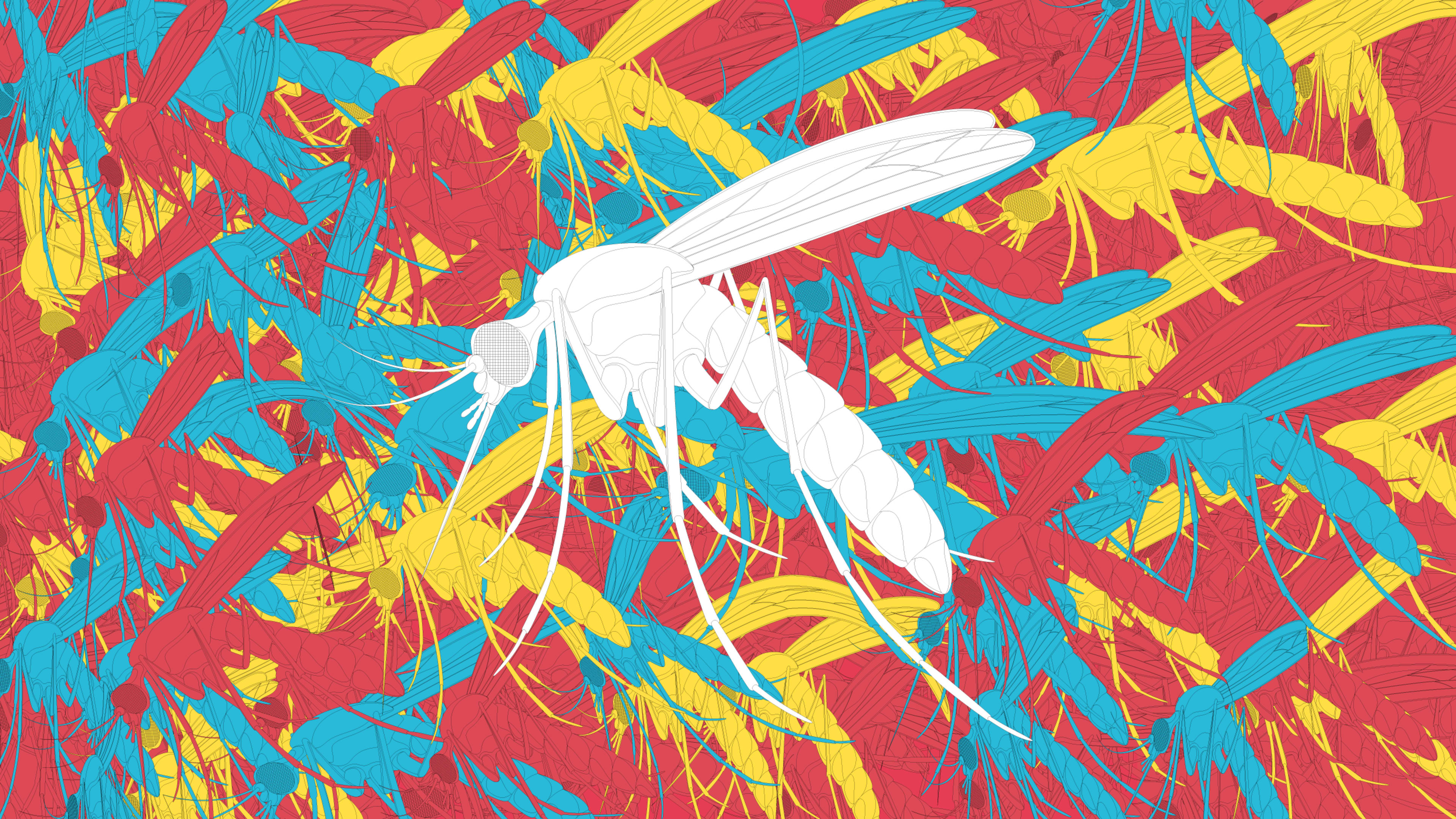In the Florida Keys, the local mosquito control agency has just approved the release of 750 million genetically engineered mosquitoes. The test, which is likely to begin in 2021, will be the first time that mosquitoes—designed to be “self-limiting,” meaning that they’ll breed offspring that can’t survive—will be used in the United States.
Oxitec, the U.K.-based company that engineered the mosquitoes, plans to place boxes filled with mosquito eggs in the area, releasing male mosquitoes bred with the self-limiting gene. When they breed with female mosquitoes, female offspring won’t survive. Because only female mosquitoes bite humans, this can help stop the spread of disease. The species they’re targeting is the Aedes aegypti or “yellow fever” mosquito, an invasive species that transmits diseases such as dengue, chikungunya, and Zika.
“With repeated releases over a number of weeks, the population of females gradually reduces,” says Kevin Gorman, Oxitec’s head of global field operations. “And we end up with vector control. It’s taking away that vector that is intended to reduce the incidence of disease.”
In previous tests in other countries including Brazil, the company says that the process has worked to dramatically shrink populations. “We’ve had multiyear programs giving over 80% control in every single year,” he says. “And that far exceeds typically what people get trying to control Aedes aegypti with chemicals, because aegypti is very resistant. It’s not usually present in super-high numbers. So it can be difficult to actually reach.”
The startup also claims that it’s a more environmentally friendly way to control mosquitoes, because it’s possible to target only a particular species, and after around 5 to 10 generations, the modified gene will be removed from the population (since the females with the gene die, halving the number of modified bugs each generation), leaving no ecological footprint. Advocacy groups, however, argue that the technology hasn’t been tested enough, and it could potentially have unintended effects.
“If they do work to reduce the number of Aedes aegypti, other mosquitoes might move into their niche,” says Jaydee Hanson, policy director for the International Center for Technology Assessment and Center for Food Safety. “The most likely one is the Asian Tiger mosquito, which is better at carrying some illnesses like West Nile.” (Oxitec says that as it has tested its mosquitoes in other areas, it hasn’t seen significant increases of the Asian Tiger mosquito.)
Hanson also says that the company needs to do more lab testing to understand how the mosquitoes might impact local species that eat the insects. “Every environment is different,” he says. “We would like them to mock up the Florida environment before they release three-quarters of a billion mosquitoes.” He argues that there’s also a risk that the engineered mosquitoes could cross-breed with native species, creating hybrids that might be more resistant to insecticides. He thinks that the EPA, which gave approval to Oxitec earlier this year, didn’t do due diligence.
Hanson argues that there are better solutions. A vaccine for yellow fever exists, for example, and other vaccines for mosquito-borne diseases are in development, including vaccines that target multiple diseases simultaneously. Simple control measures like getting rid of standing water can be effective. Malaria used to be common in the United States; it was eradicated by a combination of draining water, spraying, and removing breeding sites. “What I urge people not to do with new technologies is not to worship them,” he says. “We need to assess them rigorously.” Mosquitoes used in one place, like Florida, can also easily end up in other states that didn’t choose to approve them.
Still, if the genetically engineered mosquitoes are safe and effective, they could be a powerful tool. Globally, more than a million people die each year from diseases spread by mosquitoes. As climate change extends the range of mosquitoes, the problem could get worse. Oxitec—backed by the Gates Foundation—particularly wants to target mosquitoes that spread malaria. Of the hundreds of species of mosquitoes that exist, only a handful are most responsible for disease, says Gorman. Using genetic engineering can reduce their populations enough that they would no longer spread those diseases. “We really want to work with the community in Florida, so that we can garner their support and demonstrate to them that this really is a technology that is benign, and it could really help,” he says.
Recognize your brand’s excellence by applying to this year’s Brands That Matter Awards before the early-rate deadline, May 3.
